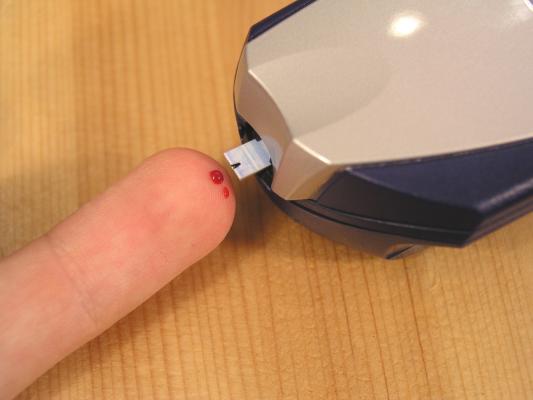
April 29, 2013 — A simple self-monitoring test could reduce the risk of stroke by half in thousands of people in the United Kingdom who currently take warfarin to prevent blood clots. Better access to self-monitoring of international normalized ratio (INR) levels, which measures how long it takes blood to form a clot, could also lower mortality rates by nearly two fifths,[1] reduce the number of complications and has the potential to save the U.K. National Health Service (NHS) around £62 million a year,[2] a group of members of parliament (MPs), patients and charities stated this week.
Speaking in Parliament, Virendra Sharma, MP and member of the Health Select Committee, said that many patients who take the anticoagulant warfarin were not benefitting from self-monitoring through either a lack of awareness or issues around access. He stated that "There are more than 1.2 million people in the U.K. on warfarin[3,4] but fewer than 2 percent of them benefit from self-monitoring."[5]
He went on to say: "If more patients are able to choose to self-monitor, it would improve the quality of their care and create savings for the NHS. We need to see more opportunities for people to discuss the option of self-monitoring with their GP. So today we are encouraging patients and their families to write to their local MPs asking for self-monitoring technology to be made available on NHS prescription and to register their support for the ACSMA campaign atwww.acsma.org.uk."
Warfarin is used to reduce the risk of blood clots in conditions such as atrial fibrillation, deep vein thrombosis, pulmonary embolism and in people with mechanical heart valves.
This week at the House of Commons, the AntiCoagulation Self-Monitoring Alliance (ACSMA) launched a new campaign to increase patient access via prescription to self-monitoring technology for those on longterm warfarin treatment. ACSMA comprises four of the U.K.'s leading charities and patient groups — AntiCoagulation Europe (ACE); the Children's Heart Federation; the Atrial Fibrillation Association (AF Association) and; the For Mechanical Heart Valve Support Group. Healthcare company Roche is also part of the alliance.
References:
1. Heneghan C, et al. "Self-monitoring of oral anticoagulation: a systematic review and meta-analysis." Lancet 2006; 367(9508): 404-11.
2. Connock M, Stevens C, Fry-Smith A, Jowett S, Fitzmaurice D, Moore D, et al. "Clinical effectiveness and cost-effectiveness of different models of managing long-term oral anticoagulation therapy: a systematic review and economic modelling [online]." Health Technol. Assess. 2007 Oct; 11(38): iii-iv, ix-66.
3. Gardiner, et al. "Patient self-testing is a reliable and acceptable alternative to laboratory monitoring." Br J Haem 2004; 128: 242-47.
4. Office for National Statistics 2008. Accessed 16 June 2011.
5. Data on file


 January 28, 2026
January 28, 2026 









